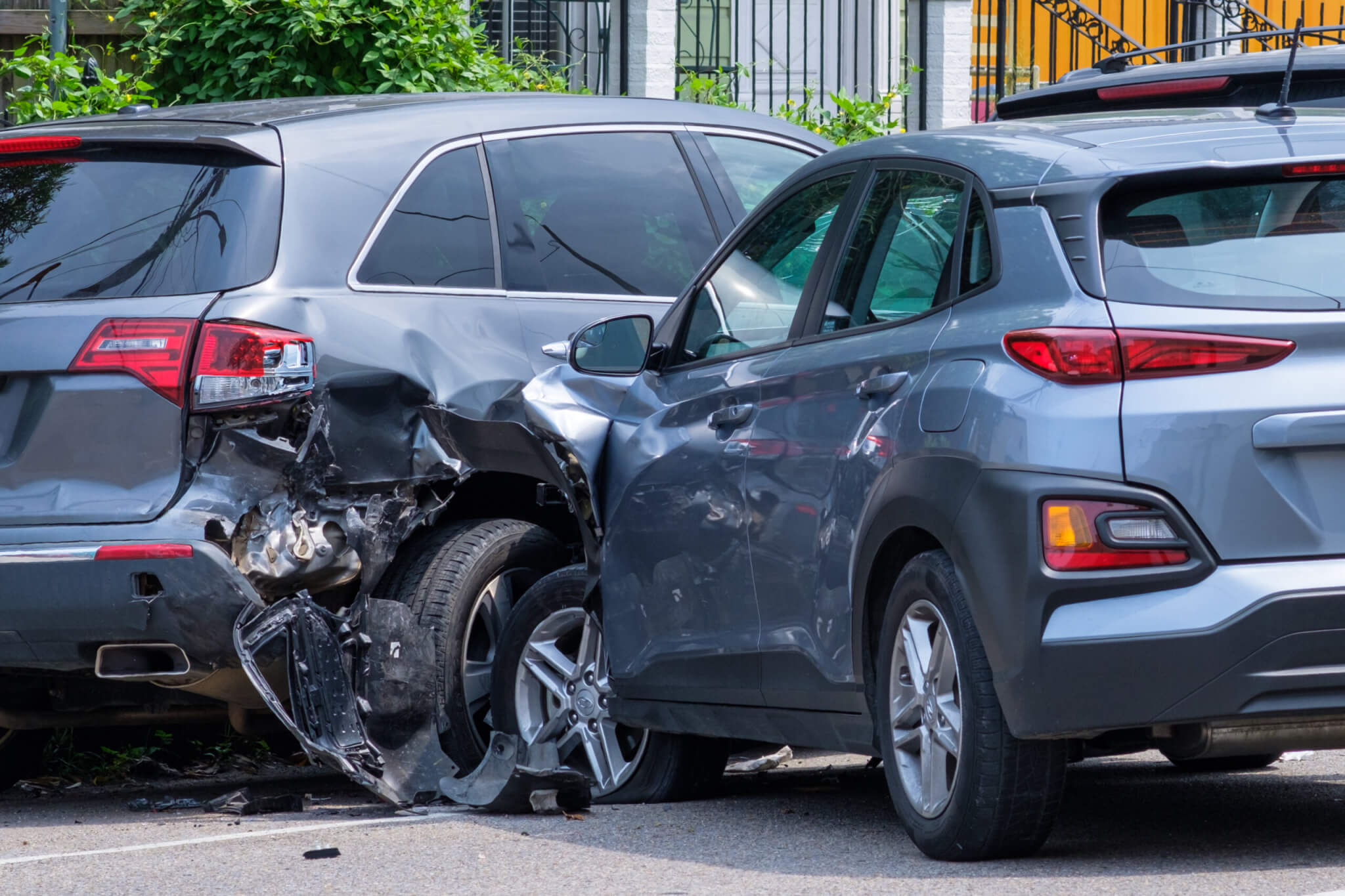
Being involved in a car accident is undeniably a traumatic experience, often leaving individuals with significant physical and mental wounds. The stress, unfortunately, doesn’t always end there. Many people anticipate their car insurance policy will simply cover the damages, but what happens when that expectation is met with a frustrating denial? Understanding the car insurance claim process, especially the reasons claims get denied, is absolutely crucial for navigating these challenging times.
As senior media editors, we’ve seen countless stories of policyholders caught off guard. Insurance companies, like any business, have their own best interests in mind. When they can find a valid reason to deny a claim or reduce its value, it directly impacts their bottom line. But here’s the good news: many denials are preventable, and knowing the common pitfalls can empower you to protect yourself and better navigate the process effectively.
In this in-depth guide, we’re going to pull back the curtain on the most frequent reasons why car insurance companies deny accident claims. Our aim is to equip you with actionable knowledge, turning potentially frustrating situations into manageable ones. We’ll start by diving into the first seven critical reasons you need to be aware of, offering practical insights straight from the experts, helping you understand the ‘why’ behind common rejections.

1. **Exceeding Policy Limits**One of the most straightforward and yet surprisingly common reasons an insurance company might deny your claim is simply because the requested damages exceed your policy’s limits. Every auto insurance policy comes with specific maximum amounts it will pay out for various types of damages. If the financial impact of an accident—be it property damage, medical bills, or other associated costs—surpasses these pre-defined limits, you could find yourself personally responsible for the excess amount.
Many vehicle owners are understandably tempted to purchase policies with minimum liability limits, often with the goal of keeping their premium amounts as low as possible. While this approach seems financially appealing in the short term, it can backfire significantly in the event of a serious or costly accident. If the total amount claimed by the driver exceeds the maximum amount that can be paid under the policy, the claim will either be partially paid out up to the policy limits or, in some instances, denied entirely for the portion that goes beyond your coverage.
It’s essential to understand that while each state sets minimum liability coverage requirements, such as $10,000 or $25,000, you always have the option to pay extra for higher limits. Regularly reviewing your coverage and ensuring your chosen limits truly align with potential risks and the rising costs of repairs and medical care, rather than just meeting minimum legal requirements, is a smart and proactive way to shield yourself from unexpected financial burdens. This forward-thinking approach can make all the difference when it truly counts.

2. **Breaking the Law or Engaging in Illegal Activity**Your car insurance claim largely hinges on adherence to the law at the time of the incident. A significant and often immediate reason for an outright claim denial is if you were found violating state law when the accident occurred. Insurance policies typically contain explicit exclusions for claims that arise directly from illegal activities, meaning if your actions were outside legal bounds, your coverage could be entirely voided.
Think about some of the most common violations that can lead directly to a denied claim: driving under the influence of alcohol or drugs (DUI), exceeding the posted speed limit, or operating a vehicle without possessing a valid driver’s license. These are not merely minor traffic infractions; they represent serious legal breaches that insurers view as direct contributing factors to the accident, making them far less likely to cover the resulting damages or injuries.
Furthermore, breaking the law isn’t always limited to just moving violations. Making illegal modifications to your vehicle that compromise its safety or compliance, for instance, can also serve as grounds for claim rejection. The same stringent rules apply if a driver is found to be engaging in any commercial activity, such as ridesharing or delivery services, at the time of the accident without having the appropriate commercial auto insurance policy. Your personal insurance policy will almost certainly deny claims stemming from such unauthorized business use.
This common reason for denial underscores a crucial and practical point: car insurance is specifically designed to protect you when unforeseen, accidental circumstances occur, not to indemnify you for actions that are knowingly unlawful or reckless. Adhering to traffic rules and consistently upholding safety standards while driving is paramount, not only for your own safety and the safety of others, but also for maintaining the fundamental validity of your insurance policy and ensuring your legitimate claims are honored.

3. **Late Claim Filing**In the stressful and often chaotic aftermath of a car accident, it’s remarkably easy to overlook critical administrative tasks, but delaying the notification to your insurance company can unfortunately be a costly mistake. One of the most common reasons claims are denied is simply due to late filing. Insurance companies operate on strict internal timelines, and if you miss their specified window for reporting an accident or submitting a formal claim, your entire request for compensation could be rejected outright.
Most insurers explicitly require that accidents be reported within a specific timeframe, sometimes stipulating ‘as soon as possible’ or within a few short days after the incident. The longer you wait to report, the more challenging it becomes for the insurance company to conduct a thorough and accurate investigation. Crucial details can fade from memory for all parties involved, critical evidence might be compromised or lost, and the insurer may plausibly argue that the circumstances surrounding the accident could have changed, making it significantly harder to assess liability fairly and accurately.
Crucially, delaying reporting the crash to the police can also be used against you by the insurer. Without an official police report detailing the incident, it can become incredibly difficult to recover compensation. The insurance company may try to exploit this lack of official documentation, potentially claiming you were not truly injured in the collision or that any injuries you are now claiming were unrelated. A common defense they might employ is, ‘How bad could it have been?’ if no official police record was made promptly after the event.
Therefore, if you’re unfortunately involved in an accident, your immediate actions should proactively include informing your insurance company and filing the claim as soon as humanly possible. Don’t delay until vehicle repairs begin or until you’ve fully recovered from any injuries. Acting quickly provides a clear, documented timeline of events and demonstrably helps avoid a denial that stems from missed deadlines or questionable circumstances arising from a lack of prompt action.

4. **Misrepresentation or Inaccurate Information**Honesty truly is the best policy when you’re dealing with insurance, and this principle applies not just during the intense claim process but from the very moment you initiate and purchase your coverage. Providing false or intentionally incomplete information, whether it occurs during the initial policy setup phase or later when you are actively filing a claim, can regrettably lead to an immediate and complete denial. This critical issue often falls under what insurers strictly refer to as ‘misrepresentation,’ and they treat such instances with utmost seriousness.
Common mistakes that lead to this type of denial are often seemingly minor at first glance, but they can carry genuinely major consequences. For instance, failing to explicitly list all drivers in your household who regularly operate the insured vehicle can easily be considered misrepresentation. Similarly, if you misreport how the vehicle is primarily used – perhaps claiming it’s solely for personal errands when it is frequently utilized for business purposes – or if you deliberately understate your estimated annual mileage, these actions can definitively trigger a claim denial.
It’s important to know that insurance companies meticulously maintain a comprehensive database of claims history. If a policyholder has a documented history of making false claims previously or has a known tendency to exaggerate the extent of damage in past incidents, their current claim is far more likely to be met with intense skepticism and, ultimately, outright rejection. This stringent vigilance extends even to information provided during the policy’s initial inception; if an insurer uncovers false data while investigating a claim, they can legally deny it based on that foundational misrepresentation.
The relationship between a policyholder and their insurer is built on a foundation of trust. When that essential trust is broken by inaccurate or dishonest information, the entire contractual agreement can be severely jeopardized. The insurance company’s investigation process is incredibly thorough, and their adjusters are highly adept at spotting inconsistencies and identifying potential red flags that strongly suggest fraudulent activity. To proactively avoid this common pitfall, always be meticulously transparent and accurate with your insurance provider from day one. Disclose all relevant information about drivers, vehicle use, and mileage honestly. This proactive approach ensures your policy is valid from the outset, significantly reducing the risk of a denial based on misrepresentation when you genuinely need to file a legitimate claim.

5. **Delayed Medical Evaluation**When you’re involved in a car accident, your immediate health and well-being are, without question, the top priority. However, from a critical claims perspective, seeking a comprehensive medical evaluation immediately following the incident is absolutely paramount. A significant delay in obtaining prompt medical attention can unfortunately provide insurance companies with a powerful and legitimate reason to deny your claim for injuries, or at the very least, substantially reduce its potential value.
Insurers universally expect that any injuries genuinely resulting from an accident will be assessed promptly by qualified medical professionals. If you delay seeking necessary medical care, they may logically question the actual extent of your injuries and, more critically, whether those injuries are truly and directly related to the accident itself. The longer you wait to consult a doctor, the exponentially harder it becomes to establish a clear and undisputed causal link between the collision and your physical ailments, thereby significantly weakening your entire injury claim.
Consider this practical insight: you might initially believe your injuries aren’t severe and will simply heal on their own in a few days or a week. While that might occasionally be the case, a qualified medical professional needs to meticulously examine you to accurately determine the exact type and severity of any injuries you may have sustained. Car crash injuries are frequently much worse than victims initially realize, and some serious underlying conditions may not present obvious symptoms immediately after the impact.
For both your personal health and the robust validity of your potential claim, always prioritize seeking immediate medical attention after an accident, even if you feel fine at the scene. Furthermore, ensure that all subsequent treatments, diagnoses, and follow-up appointments are thoroughly and meticulously documented. These comprehensive medical records serve as crucial, irrefutable evidence, establishing the necessary direct link between your injuries and the accident, and proactively preventing the insurer from using a delayed evaluation as a plausible basis for denial.

6. **Policy Exclusions**Beyond the general categories of coverage you select, every insurance policy inherently comes with a defined list of ‘exclusions’ – these are specific situations, conditions, or circumstances that are simply not covered under the terms of your agreement. This constitutes a fundamental and non-negotiable aspect of insurance contracts, and a lack of thorough understanding about these very specific exclusions is another frequently cited reason why legitimate-sounding claims are ultimately denied. What you initially assume your policy covers might, in reality, not actually be the case for certain very particular incidents.
For instance, you might logically assume your car is covered for any and all types of damage. However, without having specific comprehensive coverage in place, damage resulting from natural disasters like floods, hailstorms, or even wildfires, or incidents such as vandalism and theft, might be explicitly excluded from your policy’s protection. Similarly, routine mechanical breakdowns are typically not covered by standard auto insurance, as these are generally considered maintenance issues or wear-and-tear rather than unexpected, accident-related damages.
A particularly relevant exclusion in today’s evolving transportation landscape often revolves around specific vehicle usage. If you utilize your personal vehicle for commercial activities such as rideshare services, food delivery, or other business-related purposes without having the correct ‘endorsement’ added to your policy or a specific commercial auto insurance policy, any accident that occurs during such activity will almost certainly result in a swift denial. Your standard personal policy simply does not extend to cover these heightened business-related risks.
Therefore, it is simply not enough to merely possess ‘car insurance’; you absolutely must understand precisely what your specific policy explicitly *does* and, perhaps even more importantly, what it *does not* cover. Taking the proactive time to meticulously read through your policy documents, or engaging in an in-depth discussion about specific hypothetical scenarios with your trusted insurance agent, can immensely help you identify any potential gaps in your coverage and allow you to proactively address them. This diligent approach is key to preventing a frustrating and unexpected denial that is solely based on an existing policy exclusion.




